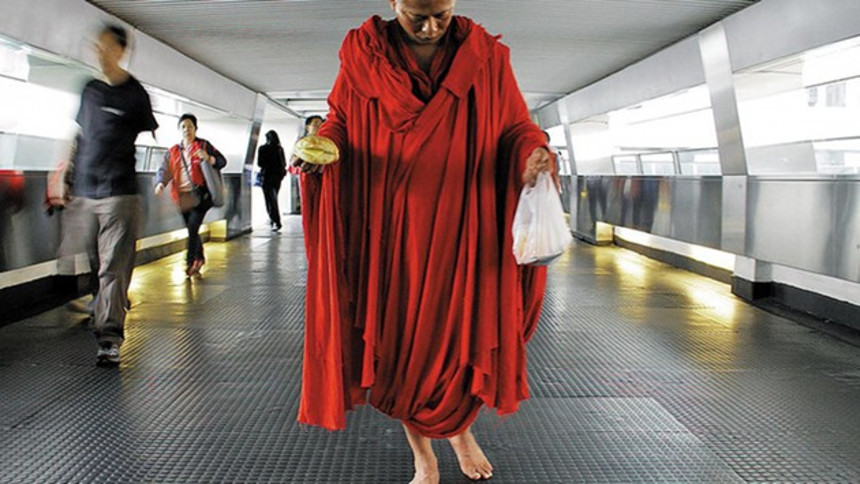VIFF 2012 Review: BEAUTIFUL 2012 Is A Rare, Successful Omnibus

Kim Tae-yong's You Are More Than Beautiful is first film in line, and probably the most accessible of the four. A serious and subdued man hires a bubbly and outspoken actress to pose as his fiancée to fulfill his dying father's last wish to see his son get married. As she attempts to create a dramatic story to their courtship, the faux couple receives a phone call indicating that it might be too late--the father, bedridden and sick, has lost consciousness. Although the connection that eventually happens between these two opposites might be predictable, this slight undertaking has far more surprises than one might expect, specifically in the set piece performance that arrives near the end given by Gong Hyo-jin who plays the young woman. Instead of sending his characters to live happily ever after, Kim allows for a far more sincere transformation of the two characters.
Second in line is this project's golden child, Tsai Ming-liang's Walker, a masterpiece of performative contemplation. Lee Kang-sheng plays a monk, barefoot and dressed in saffron robes with head deeply bowed, carrying a bag in one hand and a sandwich in the other. Tsai films Lee in various spots around Hong Kong as he makes his way through the streets with very deliberate and extremely slow steps on what seems to be an overnight journey. His protracted movements--sometimes taking 30 seconds per step--causes those passing by to look and sometimes stare. The most remarkable moment is when both Lee walking and Tsai filming take to the middle of a busy street; set against a hideously painted ad with Andy Lau in the background and the cacophony of a busy night in Hong Kong, a crowd gathers to try and understand the spectacle. The mesmerizing film subversively takes on the aesthetics film: movement, pacing, watching and being watched, and of course finding meditated order amongst the chaos. But the short is not without a sense of humor, on full display for the finale accompanied by a song from Sam Hui.
Tsai's act is pretty hard to follow, but mainland cinematographer and director Gu Changwei nearly aces it with his experimental sketch on contemporary Beijing titled Long Tou. Working far outside his typical style and approach, Gu offers snapshots of the modern urban jungle. Opening with a man dragging a long train of collected plastic bottles through a busy traffic-filled street--a contrast of the old and the new--the film repeatedly shifts between coexisting nascent street scenes. Meanwhile a trio (including writers Fang Fang and Yan Lianke) enjoys the contradictory leisure of economic stability in a coffee shop, pontificating social barbarities, individual adjudication, and the transient nature of life as social seams fray around them. Gu makes the most of a melancholic soundtrack including an ambient sound design, most notably of a weightlifter dropping his barbells while attempting a clean over and over again. It's a subtle and daring piece that is completely unexpected from Gu and it is perfectly slotted after Walker.
The closer comes from Ann Hui, fresh off her success with A Simple Life. Hui's My Way casts Hong Kong star Francis Ng as Chow, a transgender woman on the eve of her gender reassignment surgery. She has the support of her transgender friends, but conversely has the complexities of an ex-wife and a teenage son. The film encapsulates Chow's difficulties, flashing back to rock bottom moments, without resigning to heavy-handed melodrama. Ng's manly face and broad shoulders evaporate behind his inspired performance as a woman trying to fit within her body. (It also doesn't hurt that Ng has a great set of legs!) In a scene where Chow is window shopping, we watch her from inside the store as she looks at a dress and has a private moment that exudes a subconscious femininity. When My Way began streaming for free on Youku as part of the commission, it drew over 2 million views in one week, no doubt because of the subject matter, but also from the often silent and unseen transgender community of the Chinese diaspora that it so gently humanizes.

Do you feel this content is inappropriate or infringes upon your rights? Click here to report it, or see our DMCA policy.






